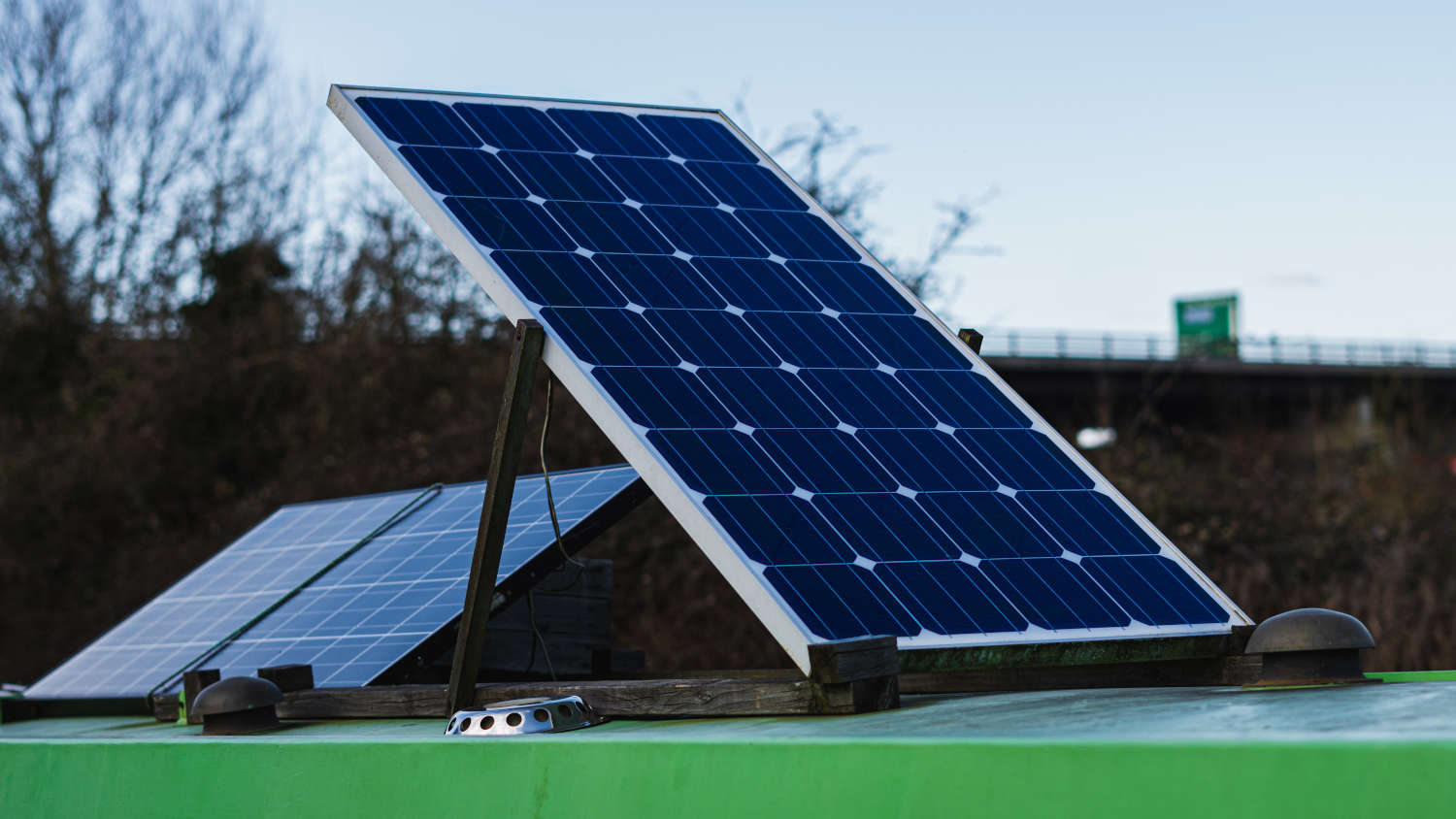
More people are becoming curious about solar energy. Solar installations are growing rapidly every year—which comes as no surprise.
With more of us trying to lead a sustainable lifestyle,, the solar energy industry is on track to become a booming industry in just a few years’ time. At present, solar energy is the cleanest and most eco-friendly form of energy.
By using solar energy, we are not only protecting the planet from pollution but also conserving our non-renewable resources for our future generations.
Interested in learning more about what makes “sun power” so amazing? Here are 15 solar energy facts to start with:
15 Fun Facts About Solar Energy
1. The first solar panel cell was invented in 1941
According to recorded solar power facts, Alexandre Edmond Becquerel discovered the photovoltaic effect In 1839. This is the ability to create an electric current from the sun’s rays. In 1941 Russell Ohl invented the first solar panel cell. The first commercial panel was, however, developed by Bell Laboratories in 1954.
2. Solar power is the largest source of energy on the planet
Solar energy is a completely free source of energy, and it is found in abundance. Currently, there are 89 Petawatts (PW) of potential solar energy production available on earth. This makes solar the world’s most abundant available source of power.
3. Solar is leading the way to a greenhouse gases-free future
Solar energy is being recognized as the future of alternative energy sources. This is because it does not pollute the air and therefore, helps combat the Greenhouse effect caused by fossil fuels.
4. It takes sunlight approximately eight minutes to reach the Earth
Fun facts about solar energy show that even though the sun is 90 million miles from the earth, it takes less than 10 minutes for light to hit the earth.
5. California is the U.S. leader in the use of solar
As of 2017, California was the top user of solar power in the U.S. It had clocked in 20,163 megawatts of solar energy. The state can power 3.7 million homes with solar energy.
6. Solar power plants can last 40 years or more
Solar panels are believed to last 40 or 50 years. Replacing solar panels is also relatively low cost as you only need to add more efficient modules thus improving performance.
7. A solar-powered home can reduce its 30-year carbon footprint by 100 tons
By installing solar panels in your home, you can reduce your carbon footprint significantly because the energy produced will be clean. Solar panels facts indicate that it is possible to reduce emissions by approximately eight pounds of sulfur dioxide, five pounds of nitrogen oxide, and more than 1,400 pounds of carbon dioxide each month.
8. The price of solar panels has greatly reduced since 2008
Solar energy is the fastest-growing energy sector in the world. Its demand is currently at an all-time high causing prices of solar panels to dip significantly. In December 2016, the cost of building and installing new solar electricity generation dropped to $1.65 per watt, making it cheaper than wind and any fossil fuel.
9. Solar energy is cheaper than fossil fuels
Solar energy costs as little as 4.3 cents per kWh while the cheapest fossil fuel option, natural gas, costs between 4.2 and 7.8 cents per kWh.
10. China is the world leader in solar energy
China is currently the global leader in installed solar energy capacity.
11. Airplanes can fly while running entirely on solar energy
Solar energy has boundless potential. Other than running our homes, power trains, cars, space stations, and even airplanes can run fully on solar energy.
12. Solar energy lowers your electricity bills significantly
According to facts about solar energy, when you add solar panels to your home or business, you will lower your electricity bills significantly. In most cases, you’ll even receive incentives for this kind of installation, saving you more money.
13. Investing in solar power pays for itself over time
The initial cost of installing solar panels may be high but don’t let this be a hindrance to switching to a solar energy system. The overall amount you save in investing in solar power is more than what you spend. Once you’ve installed your panels, you’ll no longer have to pay a heating or electric bill. You will save, on average $1,300 annually, in electricity bills.
14. Solar panels require virtually no maintenance
Solar panels don’t have any moving parts and therefore don’t need any maintenance. The batteries require no water or other regular service and will last for years. Once solar panels are installed, you will not have any other recurring costs.
15. Solar energy industry creating jobs faster than any other industry
Solar facts indicate that the solar industry is creating jobs five times faster than the job market. In 2017, renewable energy jobs overtook the number of jobs related to fossil fuels.
Continue reading: How to Be More Eco-Friendly
How does solar energy work?
Solar energy refers to energy from the sun. Solar technologies convert sunlight into electrical energy via photovoltaic (PV) panels. The sun’s energy is then absorbed by the PV cells in the panel. This energy creates electrical charges that move in response to an internal electric field in the cell, causing electricity to flow.
How much energy does a solar panel produce?
In most cases, residential solar panels have power output ratings from 250 to 400 watts. The exact amount depends on panel size and how well they convert sunlight into energy. While most people prefer higher power ratings, it is important to note that there are other factors to consider, other than power output, when judging a solar panel’s performance.
The amount of solar power generated in the U.S. alone can power more than 11.3 million homes. And that number continues to rise as we pursue cleaner alternatives in order to reduce the effects of fossil fuels on the environment.
If together we make every possible stride to switch to renewable energy sources, we will be able to lower our collective carbon footprint, reduce global warming, defeat climate change, and achieve optimum sustainability.
Sources: The Motley Fool, GreenMatch, The Wilderness Society, Conserve Energy Future, Carbon Track
You Might Also Like:

![]() Jamie - Cofounder
Jamie - Cofounder
Hi, I hope you enjoyed reading this article.
If you are looking for more ways to live an eco-conscious lifestyles, then check out our complete guide here.
Thanks for stopping by - Jamie


